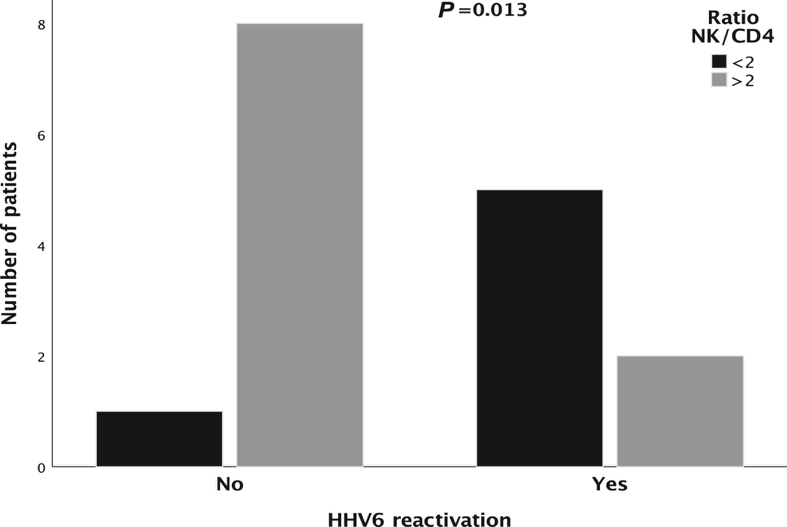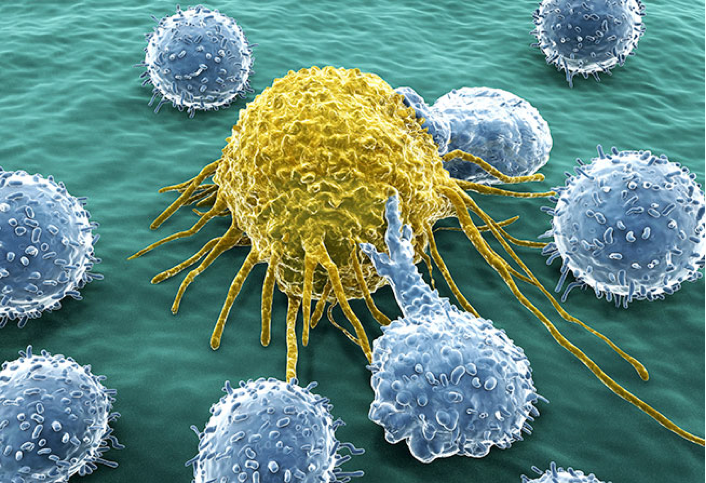A small pediatric study found that adoptive NK cell infusions eliminated HHV-6B encephalitis, while maintaining a low rate of GVHD. At a ratio of NK/CD4 >2, the HHV-6B reactivation rate dropped dramatically.
In pediatric patients undergoing hematopoietic stem cell transplantation (HSCT), viral reactivation and graft-versus-host disease (GVHD) are important adverse effects. Activated T cells contain viral reactivation but they also cause GVHD. Prior studies have shown that when a particular T cell subset—CD45RA+ T cells—in a haplo-identical allogeneic donor graft is depleted prior to infusion, the incidence of GVHD is reduced and the reactivation of CMV, EBV and adenovirus also are reduced.
Unfortunately, however, while this T-cell depletion strategy reduces reactivation of CMV, EBV and adenovirus, it does not appear to reduce the incidence of reactivated HHV-6B. To better target HHV-6B, investigators from the La Paz University Hospital in Madrid added an infusion of NK cells (CD56+CD3-) following the infusion of CD45RA+ T cells.
The small study involved 18 consecutive allo-HSCT children. Engraftment was achieved in 95%, Grades II-IV acute GVHD occurred in 39% and there were no cases of encephalitis. For context, in a previous cohort of similar patients treated without the addition of an NK cell infusion, HHV-6B encephalitis occurred 8/25 (32%) of patients.
Thus, the absence of encephalitis was encouraging, but the frequency of HHV-6B reactivation was disappointing. In examining the latter results, however, the authors noted that when the ratio of NK cells/CD4+ T cells was greater than 2 the reactivation rate was only 29%, compared to 71% when the ratio was less than 2 (P=0.01), as shown in the Figure.

Figure 1 - Relationship between HHV-6 reactivation and NK/CD4+ T-cell ratio
This small study suggests that in children with a haplo-identical allogeneic HSCT graft, adding a sufficient number of NK cells to an infusion of a CD45RA+ T cell-depleted donor graft: 1) reduces acute GVHD, 2) reduces the incidence of reactivated CMV, EBV and adenovirus; and 3) possibly reduces the incidence of HHV-6B reactivation and related encephalitis. The authors state that this was the first study to demonstrate the importance of NK cells in HHV-6B encephalitis. However, the study was small. More important, there was: 1) no comparison group not given the NK cell infusion; 2) no measurement of the ratio of NK cells/CD4+ T cells (to prompt an additional NK cell infusion, in patients with a low ratio). Therefore, these encouraging results need to be followed up by larger and controlled studies.
Read the full article: Gasior 2021

